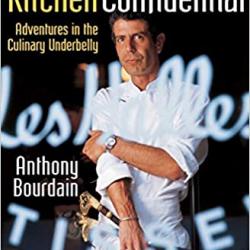
Today, June 14, 2018, was the 82nd anniversary of the death of G.K. Chesterton. I thought I’d say a few words about who he was and what he did, and why people who haven’t given him a try maybe ought to.
In 1900, Chesterton, an art school dropout, was working for a London publishing house when he was asked to contribute some articles on art criticism to a magazine, thus beginning one of the most productive careers in literary history. A weekly column in the Daily News followed in 1902, and in 1905, he got a second weekly column in the Illustrated London News – a gig that lasted until his death in 1936. By the time he died, Chesterton had written nearly a hundred books, contributed to two hundred more, and written hundreds of poems and short stories. He was just as comfortable writing books on theology and Christian apologetics as he was writing murder mysteries. With his popular priest-sleuth, Father Brown, Chesterton revolutionized the detective short story, while Orthodoxy is still recognized as one of the best defenses of Christianity written in the 20th century.
Chesterton wrote plays and poems and novels and biographies. For him, writing was play, and his pen could be a lance or a sword, but most often was just a pen, with which he wrote upon paper as maybe God writes upon the world, so keen was Chesterton’s ability to see and understand the world as it is.
He is scoffing now, at what I write. Because Chesterton did not think of himself on those terms or on that level. He always considered himself to be primarily a journalist, and here his output was tremendous: more than four thousand essays for the Illustrated London News, the Daily News, his own newspaper, G.K.’s Weekly, and many other publications, both in England and in the United States.
And whatever else he wrote about, the foundation of all Chesterton’s writing was wonder, was gratitude, at life and existence and everything in it:
The object of the artistic and spiritual life was to dig for this submerged sunrise of wonder; so that a man sitting in a chair might suddenly understand that he was actually alive, and be happy
Related to this was Chesterton’s belief in the inviolable dignity of the human person, and especially the defense of the poor, the weak, the marginalized. How he once described St. Francis of Assisi could easily apply to himself:
He was a Lover. He was a lover of God and he was really and truly a lover of men; possibly a much rarer mystical vocation. A lover of men is very nearly the opposite of a philanthropist; indeed the pedantry of the Greek word carries something like a satire on itself. A philanthropist may be said to love anthropoids. But as St. Francis did not love humanity but men, so he did not love Christianity but Christ.
Fans are familiar with masterpieces such as The Everlasting Man, The Man Who Was Thursday, and the aforementioned Orthodoxy, but one of Chesterton’s finest achievements is his biography of St. Thomas Aquinas, written in 1933. When people heard that Chesterton had agreed to write a book on St. Thomas, they wondered, despite his brilliant books on Dickens, Chaucer, St. Francis, and others, whether Chesterton had maybe overreached. Not being a professional academic, how could he possibly do justice to the Angelic Doctor?
What kind of book did Chesterton write? The twentieth century’s premier scholar of Aquinas, Etienne Gilson, wrote, “Chesterton makes one despair. I have been studying St. Thomas all my life and I could never have written such a book.”
After Chesterton’s death, Gilson said more:
I consider it as being without possible comparison the best book ever written on St. Thomas. Nothing short of genius can account for such an achievement. Everybody will no doubt admit that it is a ‘clever’ book, but the few readers who have spent twenty or thirty years in studying St. Thomas Aquinas, and who, perhaps, have themselves published two or three volumes on the subject, cannot fail to perceive that the so-called ‘wit’ of Chesterton has put their scholarship to shame. He has guessed all that which they had tried to demonstrate, and he has said all that which they were more or less clumsily attempting to express in academic formulas. Chesterton was one of the deepest thinkers who ever existed; he was deep because he was right; and he could not help being right; but he could not either help being modest and charitable, so he left it to those who could understand him to know that he was right, and deep; to the others, he apologized for being right, and he made up for being deep by being witty. That is all they can see of him.
But by the time of his book on Aquinas, while Chesterton’s wits were still intact, his health began to fail. Soon after he finished dictating his Autobiography in May of 1936, he took ill, and started to slip. As his condition worsened, he was confined to a bed. One time, after apparently dozing off, he woke up and remarked, “The issue is now quite clear. It is between light and darkness, and everyone must choose his side.”
On June 12, he was given last rights by his parish priest. Later that day, he was visited by his friend, Father Vincent McNabb, a Dominican priest and a leading proponent of Catholic social teaching. At Chesterton’s bedside Fr. McNabb sang the Salve Regina, a hymn to the Blessed Virgin, which is traditionally sung over a dying Dominican. Seeing Chesterton’s pen lying on the bedside table, he picked it up, and kissed it.
Chesterton’s last words were to his wife Frances, to whom he said, “Hello my darling,” and to his secretary, Dorothy Collins, to whom he said, “Hello my dear.” On June 14, the Sunday within the Octave of Corpus Christi, he died. The Mass introit for that day is entirely fitting, in more ways than one: “The Lord became my protector and He brought me forth into a large place. He saved me because he was well pleased with me. I will love thee, O Lord my strength. The Lord is my refuge and my deliverer.”
One of the benefits of reading Chesterton, as opposed to getting him filtered through other sources, is that you get Chesterton, and not a false “Toby Jug” caricature: the beer-swilling, cigar chomping, absent-minded journalist who was good with a quote and had a talent for paradox but is of little use otherwise.
Chesterton is undergoing a revival, but some of those promoting the revival like to indulge the caricature. I don’t know why. The reality is so much more exciting, moving, and interesting. If you decide to find out more about Chesterton, I implore you: read him for yourself and don’t trust anyone, not even me, to try to tell you about him. As a first book, I suggest The Everlasting Man, which is what I started with.
G.K. Chesterton, rest in peace.












